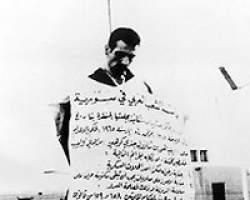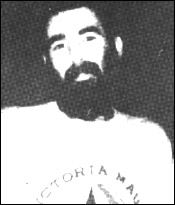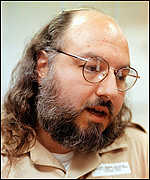 One of the biggest debates I had in the army was about the issue revolving Israeli agents/soldiers who have fallen behind enemy lines or in army operations. I amazingly was in the minority arguing that no matter what, one never leaves a brother behind. If someone G-d forbid falls, everything must be done to ensure his return - it's a value I feel that the army cannot even begin to compromise on. Why do I bring this up? On the way to a BBQ on the evening of Yom Ha'Atzma'aout (Independence Day), I asked my taxi driver what the day meant to him. He told me that ever since his friends' blood had become a part of the land, he had lost his desire to celebrate the day like he used to.
One of the biggest debates I had in the army was about the issue revolving Israeli agents/soldiers who have fallen behind enemy lines or in army operations. I amazingly was in the minority arguing that no matter what, one never leaves a brother behind. If someone G-d forbid falls, everything must be done to ensure his return - it's a value I feel that the army cannot even begin to compromise on. Why do I bring this up? On the way to a BBQ on the evening of Yom Ha'Atzma'aout (Independence Day), I asked my taxi driver what the day meant to him. He told me that ever since his friends' blood had become a part of the land, he had lost his desire to celebrate the day like he used to.  Another topic he brought up was the issue of our fallen heroes (and in same cases, our living heroes) that are still in enemy territory. With the typical passion you can expect from an Israeli, he blasted every government for not having done everything in their power to return the bones of one of history's greatest spies, Eli Cohen (first pic on the left). How a nation that held thousands of Syrian POWs & high ranking Syrian generals after the Yom Kippur War not ensure their return for the return of his bones to Israel to be buried baffled the man (and rightly so). He continued to talk about his great disappointment in the abandonment of figures like Ron Arad (pic on the right) and Jonathan Pollard (second pic on the left side). This is a major problem in my eyes.
Another topic he brought up was the issue of our fallen heroes (and in same cases, our living heroes) that are still in enemy territory. With the typical passion you can expect from an Israeli, he blasted every government for not having done everything in their power to return the bones of one of history's greatest spies, Eli Cohen (first pic on the left). How a nation that held thousands of Syrian POWs & high ranking Syrian generals after the Yom Kippur War not ensure their return for the return of his bones to Israel to be buried baffled the man (and rightly so). He continued to talk about his great disappointment in the abandonment of figures like Ron Arad (pic on the right) and Jonathan Pollard (second pic on the left side). This is a major problem in my eyes.  All these examples (Along with the UN assisted Hezbollah kidnapping of 3 Israeli soldiers in 2000 - their bodies were only returned in 2004 and the incident at Joseph's Tomb) were mentioned in that heated army debate I mentioned earlier. Eventually more and more of the unit started realizing that a soldier's dedication to his mission would be greatly compromised if a fate similar to that of the examples I've mentioned was the norm. I'm sure I'm not the only soldier who asks himself, that if G-d forbid he was to fall in a battle in enemy territory, would the country do all in her power to ensure that his body would be returned to its rightful resting grounds in Israel?
All these examples (Along with the UN assisted Hezbollah kidnapping of 3 Israeli soldiers in 2000 - their bodies were only returned in 2004 and the incident at Joseph's Tomb) were mentioned in that heated army debate I mentioned earlier. Eventually more and more of the unit started realizing that a soldier's dedication to his mission would be greatly compromised if a fate similar to that of the examples I've mentioned was the norm. I'm sure I'm not the only soldier who asks himself, that if G-d forbid he was to fall in a battle in enemy territory, would the country do all in her power to ensure that his body would be returned to its rightful resting grounds in Israel?The difficulty of Yom Ha'Zikaron ends with an explosion of happiness and euphoria as Yom Ha'atzma'aout is ushered in. It's an amazing 180 degree u-turn and it's something that basically signifies the Israeli mentality. While we deeply mourn and miss our fallen, we understand that life must continue. The sadness and pensive moods of Yom Ha'Zikaron are necessities but the joy and celebration of life during Yom Ha'atzma'aout is just as critical. Besides a BBQ and the usual bar hopping, I also spent some time at a Rikuday A'am (Israeli folk dancing) event. Hearing songs like 'Od Loh Ahavti Dai' or 'Mayim Mayim' and seeing so many people dance them, and dance them right, bought a few tears to my eyes. These are the songs that the first generation of Israelis danced to ... Israelis who knew they'd never see the fruit of their labor, and yet gave everything they could to ensure that their children and grandchildren would have the amazing country we have today. If only more of us had that attitude today ...

No comments:
Post a Comment